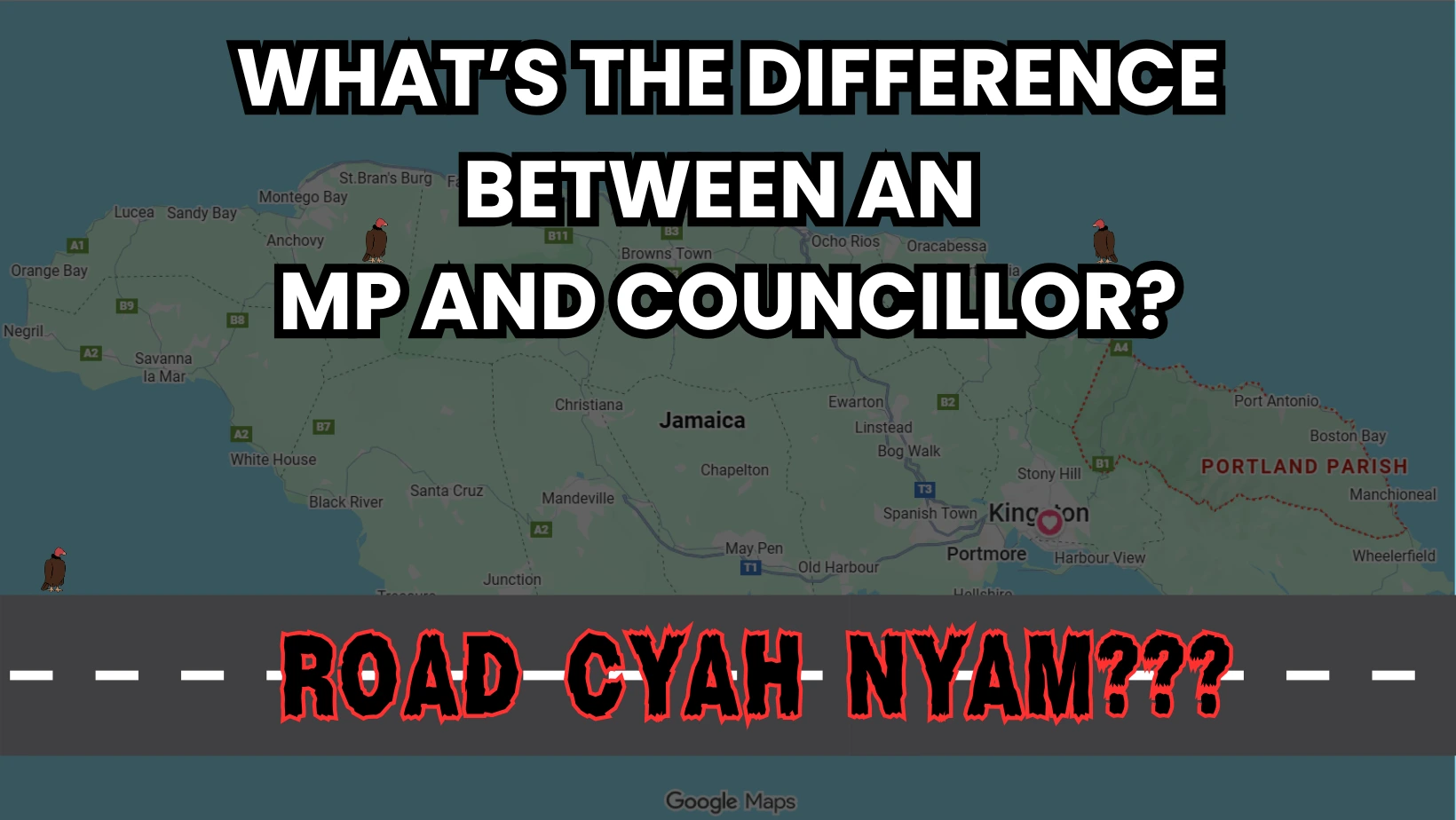
A Brief Look
Members of Parliament (MPs) and Local Councillors are both elected representatives, but they serve at different levels of government with distinct roles. An MP serves in the National Parliament (House of Representatives) representing a constituency, while a Councillor serves in a local Municipal Corporation (Parish Council) representing a smaller local division within a constituency. Jamaicans have mixed up the roles and responsibilities of MPs and councillors from ‘Whappie Kill Phillup’.
The average Jamaican can’t be fully blamed, as some politicians over the years have ‘misled’ the people. By the end of this article, you will clearly know the differences between an MP and a Councillor.
What Are The Roles of An MP?
The Jamaican Constitution explicitly defines and empowers MPs as part of the
national legislature. Our MPs sit in the House of Representatives. Some Jamaicans believe that all MPs do is sit in parliament all day and ‘beat desks’, which isn’t fully true.
One of the key roles of MPs is to participate in making and amending laws. They debate and vote on legislation, approve national budgets, and hold the government accountable. MPS also represent constituents’ interests at the national level. Here are some key responsibilities of MPs:
- Propose, debate, and vote on laws affecting the entire country.
- Influence the allocation of national resources and development projects.
- Advocate for development projects in their constituency and assist constituents in liaising with government agencies. MPs often utilize the Constituency Development Fund to finance local projects.
ADVERTISEMENT
What Are The Roles of A Local Councillor?
MPs tend to take most of the spotlight and glory; however, local councillors play an important role. Participates in governing the parish or municipality. Councillors make local by-laws and regulations for their area and oversee local services.
Through the council, they manage community infrastructure (roads,
drains, etc.), local facilities, and address day-to-day issues. The Councillor represents the immediate needs of their division in the municipality. Here are some key responsibilities of Local Councillors:
- Ensure maintenance of local infrastructure and delivery of services like garbage collection, street lighting, local water supply, markets, parks, etc.
- Approve building plans, zoning, and community development initiatives through council committees.
- Directly address residents’ concerns, such as road repairs, drain cleaning, community centers, and bringing local problems to the council or relevant agencies.
How Were The Roles Mixed Up?
Given everything stated above, how did we end up with this current situation of ‘MPs taking credit for Councillors’ work?’ As constituents, we usually associate any local development with the MP. They enjoy high public visibility and often show up at ribbon-cutting ceremonies for projects.
Culturally, we are more inclined to praise MPs when things in the constituency are going well. In fact, when anything needs to be done locally, people tend to go straight to the MP.
We believe that MPs have more ‘clout’ to get things done by leveraging central government resources or pressuring agencies. These MPs update constituents on, for example, social media platforms regarding the work that is being done. It’s easy to see how we ended up with this belief that MPs are responsible for local work.
It’s important to note that MPs rarely have direct operational control over infrastructure works. Road patching or water pipe repairs are carried out by entities like the National Works Agency or the National Water Commission, often in coordination with the municipal council. However, MPs act as key advocates or intermediaries.
They lobby ministries, coordinate with agencies, and/or access special funds to address local problems. When those efforts succeed, the MP’s involvement is well publicized, whereas the behind-the-scenes role of the councillor or agency is less visible.
In Essence, MPs become the political “face” of local development due to their greater visibility and direct engagement with constituents. They do not formally direct the road crews or water engineers, but through constant communication, advocacy, and on the ground presence, MPs shape the narrative that development in the constituency flows from their efforts.
Victims Of The System?
What if the MPs are just victims of a decades-long system and cultural expectation? In Jamaica, many people vote based on the local development they see in their community. We also have this belief that the MP should be the one solving our local issues.
This places heavy and unsustainable expectations on our MPs, who now have to deliver or face the possibility of being voted out. Sure, there are political benefits to be had; however, this undermines our local governance framework.
The use of the Constituency Development Fund(CDF) further complicates this issue. MPs can use money from the CDF to directly fund small to medium projects without consulting local councillors. This sometimes causes issues between MPs and councillors.
The Way Forward
We need to educate people on the role of the MP and the Councillor. Through education, we can help to correct this system, which places pressure on the MP. For the most part, the MP should be focused on assisting with the amendment and creation of laws.
The Councillor needs to be given proper credit for local development. Both forces working together and enacting the roles they are assigned will be for the betterment of our country.
If you liked this article, definitely share it with a friend who also has misconceptions about the roles of MPs and Councillors.
The Republic Post has completed its survey on Renting in Jamaica. You can view the results here: Jump to Results






